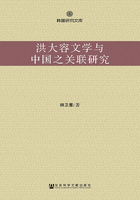The opposite disadvantages may be similarly cured, and, when the government is too lax, tribunals may be set up to concentrate it.This is done in all democracies.In the first case, the government is divided to make it weak; in the second, to make it strong: for the maxima of both strength and weakness are found in simple governments, while the mixed forms result in a mean strength.8.THAT ALL FORMS OF GOVERNMENT DO NOT SUIT ALL COUNTRIES L IBERTY , not being a fruit of all climates, is not within the reach of all peoples.The more this principle, laid down by Montesquieu, E2 is considered, the more its truth is felt; the more it is combated, the more chance is given to confirm it by new proofs.
In all the governments that there are, the public person consumes without producing.Whence then does it get what it consumes? From the labour of its members.The necessities of the public are supplied out of the superfluities of individuals.It follows that the civil State can subsist only so long as men's labour brings them a return greater than their needs.
The amount of this excess is not the same in all countries.In some it is considerable, in others middling, in yet others nil, in some even negative.The relation of product to subsistence depends on the fertility of the climate, on the sort of labour the land demands, on the nature of its products, on the strength of its inhabitants, on the greater or less consumption they find necessary, and on several further considerations of which the whole relation is made up.
On the other side, all governments are not of the same nature: some are less voracious than others, and the differences between them are based on this second principle, that the further from their source the public contributions are removed, the more burdensome they become.The charge should be measured not by the amount of the impositions, but by the path they have to travel in order to get back to those from whom they came.
When the circulation is prompt and well-established, it does not matter whether much or little is paid; the people is always rich and, financially speaking, all is well.On the contrary, however little the people gives, if that little does not return to it, it is soon exhausted by giving continually:
the State is then never rich, and the people is always a people of beggars.
It follows that, the more the distance between people and government increases, the more burdensome tribute becomes: thus, in a democracy, the people bears the least charge; in an aristocracy, a greater charge; and, in monarchy, the weight becomes heaviest.Monarchy therefore suits only wealthy nations; aristocracy, States of middling size and wealth; and democracy, States that are small and poor.
In fact, the more we reflect, the more we find the difference between free and monarchical States to be this: in the former, everything is used for the public advantage; in the latter, the public forces and those of individuals are affected by each other, and either increases as the other grows weak; finally, instead of governing subjects to make them happy, despotism makes them wretched in order to govern them.
We find then, in every climate, natural causes according to which the form of government which it requires can be assigned, and we can even say what sort of inhabitants it should have.
Unfriendly and barren lands, where the product does not repay the labour, should remain desert and uncultivated, or peopled only by savages; lands where men's labour brings in no more than the exact minimum necessary to subsistence should be inhabited by barbarous peoples: in such places all polity is impossible.Lands where the surplus of product over labour is only middling are suitable for free peoples; those in which the soil is abundant and fertile and gives a great product for a little labour call for monarchical government, in order that the surplus of superfluities among the subjects may be consumed by the luxury of the prince: for it is better for this excess to be absorbed by the government than dissipated among the individuals.I am aware that there are exceptions; but these exceptions themselves confirm the rule, in that sooner or later they produce revolutions which restore things to the natural order.
General laws should always be distinguished from individual causes that may modify their effects.If all the South were covered with Republics and all the North with despotic States, it would be none the less true that, in point of climate, despotism is suitable to hot countries, barbarism to cold countries, and good polity to temperate regions.I see also that, the principle being granted, there may be disputes on its application;it may be said that there are cold countries that are very fertile, and tropical countries that are very unproductive.But this difficulty exists only for those who do not consider the question in all its aspects.We must, as I have already said, take labour, strength, consumption, etc., into account.
Take two tracts of equal extent, one of which brings in five and the other ten.If the inhabitants of the first consume four and those of the second nine, the surplus of the first product will be a fifth and that of the second a tenth.The ratio of these two surpluses will then be inverse to that of the products, and the tract which produces only five will give a surplus double that of the tract which produces ten.
But there is no question of a double product, and I think no one would put the fertility of cold countries, as a general rule, on an equality with that of hot ones.Let us, however, suppose this equality to exist:













